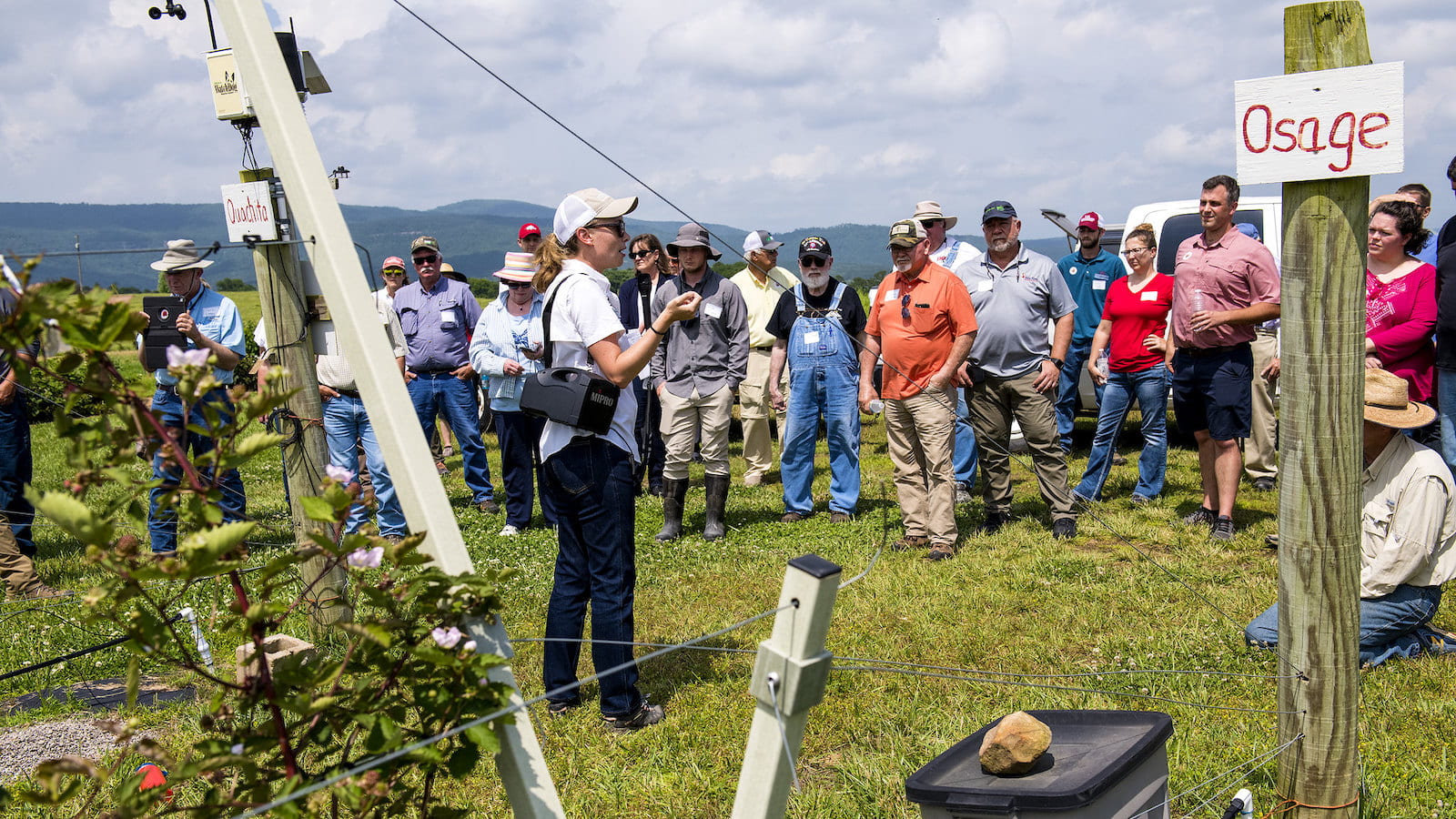Rotating Cross-Arm Trellis Offers Improved Yields, Quality for Blackberries

The Fruit Research Station hosted a Summer Blackberry Tour sponsored by the Arkansas Blackberry Growers Association. Researcher and extension specialist Amanda McWhirt discusses her work on rotating cross-arm trellis systems. (UA System Division of Agriculture photo by Fred Miller)

Amanda McWhirt
Assistant Professor and Extension Horticulture Production Specialist – Horticulture
Contact Amanda McWhirt
The Problem
Although blackberries grow well in Arkansas, the state’s high humidity, intense heat and heavy rainfall leave growers battling sunburned fruit and high insect and disease pressure. Although the traditional T-trellis can mitigate these factors, crowded canopies keep humidity high, fruit remains exposed to direct sun and harvest can often be difficult.
The Work
The Rotating Cross-Arm (RCA) trellis offers an alternative way to grow blackberries, with the ability to rotate the canes and train along a narrow trellis. The trellis can be rotated so that all fruit is on one side of the trellis in the shade to reduce fruit sunburn, making harvest easier and potentially lowering labor costs. The narrow canopy offers increased airflow and decreased humidity in the canopy which has been shown to reduce disease. Additionally, with the ability to rotate the canes throughout the season, growers can rotate the canes to the ground to protect them with covers during frost and freeze events.
Although the RCA trellis has been around for some time, minimal research has been conducted in the Southeast. Dr. Amanda McWhirt with the University of Arkansas System Division of Agriculture has been studying the RCA trellising system at the Fruit Research Station near Clarksville since 2017. McWhirt’s research is testing different training methods along the RCA trellis to maximize labor efficiency, and examining the trellis for impacts on yield, fruit quality and pest pressure.
The Results
So far in her research, McWhirt has seen increased yield per plant with the RCA trellis over the traditional T-trellis, improved measures of fruit quality and lowered Spotted Wing Drosophila populations.
The Value
With tested methods from Division of Agriculture researchers, the Rotating Cross Arm trellising system could improve yield, fruit quality, and reduce harvest labor costs for blackberry growers across the state. Many growers have already seen results, as those who have adopted this trellis were able to save their crop during the February 2021 freeze.
About the Researcher
Related Links

Amanda McWhirt
Assistant Professor and Extension Horticulture Production Specialist, Horticulture
B.S. in Horticulture from Tarleton State University
M.S. in Soil Science from Louisiana State University
Ph.D. in Crop Science at North Carolina State University
Research interests include production practices that increase cropping system efficiency and soil management practices for small fruit production.
